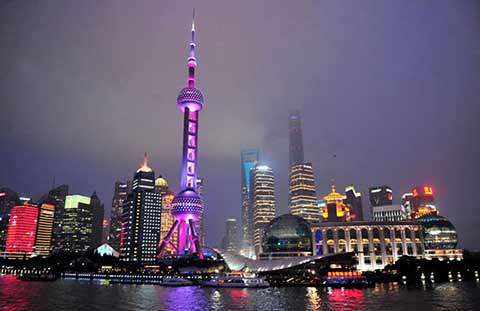ICBC to continue support "Belt and Road" projects: official
(Xinhua) Updated: 2016-05-27 14:34ISTANBUL -- The Industrial and Commercial Bank of China (ICBC), the world's biggest in terms of capital and deposit, on Thursday voiced its readiness to continue its "all-round" financial services for "Belt and Road" projects.
"ICBC is keen and active in promoting the Belt and Road Initiative," said Gu Shu, ICBC's senior executive vice president.
The initiative, which comprises the Silk Road Economic Belt and the 21st Century Maritime Silk Road, is aiming at building a trade and infrastructure network connecting Asia with Europe and Africa along the ancient Silk Road routes.
"ICBC has 123 branches in 18 countries along the Belt and Road, making it the Chinese financial institution that covers the most countries along the route," Gu said.
"ICBC has been actively providing all-round and integrated financial services for 'Belt and Road' projects," he added. "So far, ICBC has operated 208 projects along the route, with a combined investment of $220.8 billion."
Gu was in Istanbul for the first anniversary of the inauguration of ICBC Turkey, which was established after ICBC purchased a majority of shares of Turkey's Tekstilbank in May last year.
By the first quarter of this year, total assets of ICBC Turkey has more than doubled to $2.507 billion, its loans have grown by 79.87 percent, while its earning power has also increased significantly, putting the bank on a sound footing for a healthy and stable development in the years to come, according to the lender.
ICBC Turkey, which employs 915 workers, is a business institution that provides all-round financial services, as it is licensed for commercial banking, investment banking and asset management, and has a network of 44 branches, 20 security exchanges and one representative office across the country.
In its next moves, the bank is seeking to develop what it calls "superior" financial services so as to contribute more to projects in Turkey and neighboring countries along the "Belt and Road" route, and to undertakings relating to cooperation on and export of production capacity as Chinese companies are pursuing a "going-out" strategy.
ICBC Turkey is also seeking to promote trade and investment between China and Turkey, and serve Turkey's efforts for economic and social development.
Gu Jingqi, the Chinese consul general, referred to the fact that trade between China and Turkey grew to $21.565 billion in 2015, with Beijing becoming Ankara's second largest trading partner and largest source of imports.
"Since last year in particular, the investment in Turkey by Chinese companies has achieved a blowout growth," Gu said. "In 2015 alone, China had twice as much investment in Turkey as it had altogether over the previous two decades."
He said by taking advantage of the initiative, Chinese and Turkish companies are joining hands in advancing projects including a high-speed rail linking Kars in Turkey's east with the country's western city of Edirne, and the third nuclear-power plant in Turkey.
ICBC acquired 75.5 percent stake in Tekstilbank from Turkish GSD Holding in May 2015, making it the first Chinese financial institution that operates in Turkey.
It was announced early this month that Bank of China, one of the world's largest financial institutions, had won permission to operate in Turkey.
In the view of Ismail Gultekin, deputy governor of Istanbul, ICBC Turkey "will contribute to our country while supporting important investments and creating important business opportunities in both short and long term."
"All these will contribute positively to the already strong friendship between Turkey and China," he said, adding "ICBC's presence in Turkey is a necessity, as it has strong importance in the Silk Road projects."
- Say goodbye to deliverymen and hello to robots
- Ford to recall vehicles in China
- China 'resolutely opposes' US steel probe
- UN agency hails China's industrial strategy
- Xiamen ready to become international city
- China mulls changes to foundation management
- China drives Asia's financial technology investment: report
- China's property developer eyes investment in high-end town in Cambodia
















